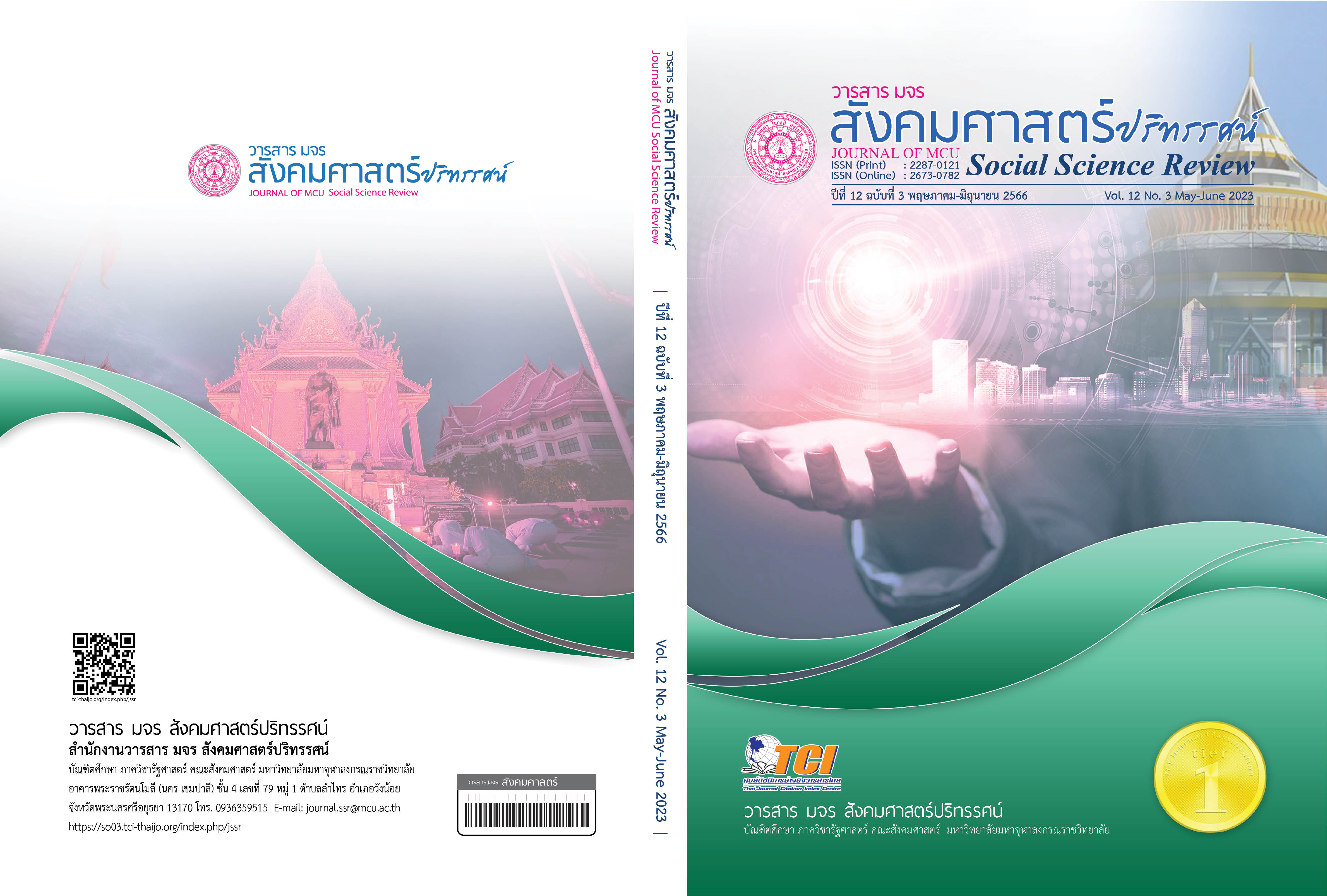การวิจัยและศึกษาความพึงพอใจของนักท่องเที่ยวชาวจีนที่เดินทางมาเชียงใหม่
คำสำคัญ:
ความพึงพอใจของนักท่องเที่ยว, พฤติกรรมการท่องเที่ยว, นักท่องเที่ยวที่มาเยี่ยมเยือนเชียงใหม่บทคัดย่อ
วิทยานิพนธ์นี้ได้ทำการสำรวจจังหวัดเชียงใหม่วิเคราะห์สถานการณ์ปัจจุบันของนักท่องเที่ยวชาวจีนที่มาเยี่ยมเยือนเชียงใหม่ประเทศไทยใช้วิธีการประเมินแบบคลุมเครือ เพื่อศึกษาความพึงพอใจของนักท่องเที่ยวชาวจีนที่มาเยือนประเทศไทยและเพื่อเสนอมาตรการปรับปรุงความพึงพอใจของนักท่องเที่ยวชาวจีนจากกว่างซีมายังประเทศไทย
เนื้อหาในการวิจัยประกอบด้วย: (1) ออกแบบระบบประเมินผลดัชนีความพึงพอใจของนักท่องเที่ยวชาวจีนที่มาเยือนชมจังหวัดเชียงใหม่ และออกแบบแบบสอบถามที่เหมาะสม (2) ใช้แบบสอบถามรวบรวมข้อมูลและใช้การประเมินที่ครอบคลุมและวิธี IPA เพื่อค้นหาปัจจัยที่ส่งผลต่อความพึงพอใจของนักท่องเที่ยวชาวจีนที่เดินทางมาจังหวัดเชียงใหม่ (3) ประกอบกับสถานการณ์ปัจจุบันของอุตสาหกรรมการท่องเที่ยวจังหวัดเชียงใหม่ เสนอมาตรการปรับปรุงความพึงพอใจของนักท่องเที่ยวชาวจีนที่มาเยือนจังหวัดเชียงใหม่ การวิจัยที่สำคัญของบทความนี้คือช่วยให้ตลาดการท่องเที่ยวจังหวัดเชียงใหม่ เข้าใจความต้องการที่หลากหลายของนักท่องเที่ยวชาวจีนและค้นหาปัญหาที่ส่งผลต่อการพัฒนาการท่องเที่ยว เป็นข้อมูลอ้างอิงสำหรับจังหวัดเชียงใหม่ในการกำหนดกลยุทธ์การพัฒนาตลาดการท่องเที่ยวและยังช่วยส่งเสริมการเติบโตอย่างยั่งยืนของอุตสาหกรรมการท่องเที่ยวของจังหวัดเชียงใหม่อีกด้วย
เอกสารอ้างอิง
Akama J, Damiannah M K. (2003). Measuring tourist satisfaction with Kenya5 wild wildlife safari: A case study ofTsavo West National Park [J]. Tourism Management, 24(1), 73-81.
Cardozo R. (1991). Customer Satisfaction: Laboratory Study and Marketing Action [J]. Journal of Marketing Research, 3(11), 244-249.
Chon, K. S. & Olsen M. D. (1991). Functional Congruity and Self Congruity Approaches to ConsumerSatisfaction. Dissatisfaction in Tourism [J]. Journal of the International Academy of Hospitali-ty Research, 1(3), 2-22.
Deng, W. J., et al. (2013). A customer satisfaction index model for international tourist hotels: Integrating consumption emotions into the American Customer Satisfaction Index [J]. International Journal of HospitalityManageme, 3(5), 133-140.
Hasegawa H. (2010). Analyzing tourists’ satisfaction: A multivariate ordered probitapproach [J]. Tourism Management, 2010, 31(1): 86-97.
Hui T K, Wan D, Ho A. (2007). Tourists’ satisfaction, recommendation and revisitinSingapore [J]. Tourism management, 28(4): 965-975.
Nield K, et al., (2000). The role of food service in tourist satisfaction [J]. International Journal of Hospitality Management, 19(10), 375-384.
Oliver R LA. (1980). Cognitive Model of the Antecedents and Consequence of Satisfaction Decisi-ons [J]. Journal of Marketing Research, 17(6), 460-469.
Parasuraman A, et al. (1988). Servqual: A multipleitem scale for measuring customer perceptions of service quality [J]. Journal of Retailing, 64(1),12-40.
ดาวน์โหลด
เผยแพร่แล้ว
รูปแบบการอ้างอิง
ฉบับ
ประเภทบทความ
สัญญาอนุญาต
ลิขสิทธิ์ (c) 2023 วารสาร มจร สังคมศาสตร์ปริทรรศน์

อนุญาตภายใต้เงื่อนไข Creative Commons Attribution-NonCommercial-NoDerivatives 4.0 International License.
เพื่อให้เป็นไปตามกฎหมายลิขสิทธิ์ ผู้นิพนธ์ทุกท่านต้องลงลายมือชื่อในแบบฟอร์มใบมอบลิขสิทธิ์บทความให้แก่วารสารฯ พร้อมกับบทความต้นฉบับที่ได้แก้ไขครั้งสุดท้าย นอกจากนี้ ผู้นิพนธ์ทุกท่านต้องยืนยันว่าบทความต้นฉบับที่ส่งมาตีพิมพ์นั้น ได้ส่งมาตีพิมพ์เฉพาะในวารสาร มจร สังคมศาสตร์ปริทรรศน์ เพียงแห่งเดียวเท่านั้น หากมีการใช้ภาพหรือตารางหรือเนื้อหาอื่นๆ ของผู้นิพนธ์อื่นที่ปรากฏในสิ่งตีพิมพ์อื่นมาแล้ว ผู้นิพนธ์ต้องขออนุญาตเจ้าของลิขสิทธิ์ก่อน พร้อมทั้งแสดงหนังสือที่ได้รับการยินยอมต่อบรรณาธิการ ก่อนที่บทความจะได้รับการตีพิมพ์ หากไม่เป็นไปตามข้อกำหนดเบื้องต้น ทางวารสารจะถอดบทความของท่านออกโดยไม่มีข้อยกเว้นใดๆ ทั้งสิ้น





